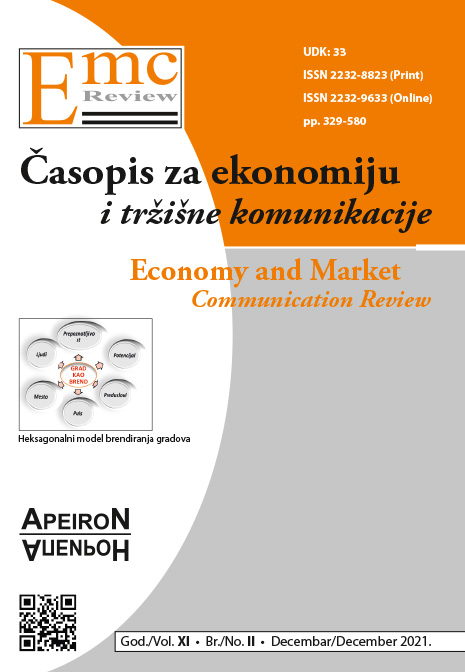EFFECT OF SHORT-TERM INCENTIVES ON MANAGERS’ MOTIVATION: A CASE STUDY OF SERBIAN BANKING SECTOR
DOI:
https://doi.org/10.7251/EMC2102336MAbstract
The aim of this paper is to investigate the differences in managers’ motivation with short-term incentives in the banking sector of the Republic of Serbia. The research study examined whether short-term incentives differently affect managers’ motivation, depending on hierarchy and age. For this purpose the survey was conducted, using a questionnaire method. The analysis of various literature sources was performed, emphasizing the importance of short-term incentives, as compensation component, for managers’ motivation. Based on insights into existing studies, research hypotheses were established. The empirical results were analyzed quantitatively, using standard statistical methods. The results indicated that there are no significant differences in managers’ motivation with short-term incentives, in relation to their current hierarchical position. Further, the survey results revealed significant relationship between motivation with short-term incentives and managers’ age, that is, the findings show that short-term incentives are more effective in motivating older managers. Therefore, the results are important for compensation strategies in contemporary business organizations. From the aspect of designing executive compensation packages, organizations need to adapt them to different subgroups of managers, considering their motivational preferences.
